Published: march 23, 2003; The New York Times Magazine. Paul Berman is the author of the book ”Terror and Liberalism” (W.W. Norton), from which this essay (republished in 3 parts) is adapted. You can read part 1 here en part 3 here.
by Paul Berman
In the fourth century of the Christian era, Emperor Constantine converted the Roman Empire to Christianity. But Constantine, in Qutb’s interpretation, did this in a spirit of pagan hypocrisy, dominated by scenes of wantonness, half-naked girls, gems and precious metals. Christianity, having abandoned the Mosaic code, could put up no defense. And so, in their horror at Roman morals, the Christians did as best they could and countered the imperial debaucheries with a cult of monastic asceticism.
But this was no good at all. Monastic asceticism stands at odds with the physical quality of human nature. In this manner, in Qutb’s view, Christianity lost touch with the physical world. The old code of Moses, with its laws for diet, dress, marriage, sex and everything else, had enfolded the divine and the worldly into a single concept, which was the worship of God. But Christianity divided these things into two, the sacred and the secular. Christianity said, ”Render unto Caesar what is Caesar’s and unto God what is God’s.” Christianity put the physical world in one corner and the spiritual world in another corner: Constantine’s debauches over here, monastic renunciation over there. In Qutb’s view there was a ”hideous schizophrenia” in this approach to life. And things got worse.
A series of Christian religious councils adopted what Qutb thought to be irrational principles on Christianity’s behalf — principles regarding the nature of Jesus, the Eucharist, transubstantiation and other questions, all of which were, in Qutb’s view, ”absolutely incomprehensible, inconceivable and incredible.” Church teachings froze the irrational principles into dogma. And then the ultimate crisis struck.
Qutb’s story now shifts to Arabia. In the seventh century, God delivered a new revelation to his prophet Muhammad, who established the correct, nondistorted relation to human nature that had always eluded the Christians. Muhammad dictated a strict new legal code, which put religion once more at ease in the physical world, except in a better way than ever before. Muhammad’s prophecies, in the Koran, instructed man to be God’s ”vice regent” on earth — to take charge of the physical world, and not simply to see it as something alien to spirituality or as a way station on the road to a Christian afterlife. Muslim scientists in the Middle Ages took this instruction seriously and went about inquiring into the nature of physical reality. And, in the Islamic universities of Andalusia and the East, the Muslim scientists, deepening their inquiry, hit upon the inductive or scientific method — which opened the door to all further scientific and technological progress. In this and many other ways, Islam seized the leadership of mankind. Unfortunately, the Muslims came under attack from Crusaders, Mongols and other enemies. And, because the Muslims proved not faithful enough to Muhammad’s revelations, they were unable to fend off these attacks. They were unable to capitalize on their brilliant discovery of the scientific method.
The Muslim discoveries were exported instead into Christian Europe. And there, in Europe in the 16th century, Islam’s scientific method began to generate results, and modern science emerged. But Christianity, with its insistence on putting the physical world and the spiritual world in different corners, could not cope with scientific progress. And so Christianity’s inability to acknowledge or respect the physical quality of daily life spread into the realm of culture and shaped society’s attitude toward science.
As Qutb saw it, Europeans, under Christianity’s influence, began to picture God on one side and science on the other. Religion over here; intellectual inquiry over there. On one side, the natural human yearning for God and for a divinely ordered life; on the other side, the natural human desire for knowledge of the physical universe. The church against science; the scientists against the church. Everything that Islam knew to be one, the Christian Church divided into two. And, under these terrible pressures, the European mind split finally asunder. The break became total. Christianity, over here; atheism, over there. It was the fateful divorce between the sacred and the secular.
Europe’s scientific and technical achievements allowed the Europeans to dominate the world. And the Europeans inflicted their ”hideous schizophrenia” on peoples and cultures in every corner of the globe. That was the origin of modern misery — the anxiety in contemporary society, the sense of drift, the purposelessness, the craving for false pleasures. The crisis of modern life was felt by every thinking person in the Christian West. But then again, Europe’s leadership of mankind inflicted that crisis on every thinking person in the Muslim world as well. Here Qutb was on to something original. The Christians of the West underwent the crisis of modern life as a consequence, he thought, of their own theological tradition — a result of nearly 2,000 years of ecclesiastical error. But in Qutb’s account, the Muslims had to undergo that same experience because it had been imposed on them by Christians from abroad, which could only make the experience doubly painful — an alienation that was also a humiliation.
That was Qutb’s analysis. In writing about modern life, he put his finger on something that every thinking person can recognize, if only vaguely — the feeling that human nature and modern life are somehow at odds. But Qutb evoked this feeling in a specifically Muslim fashion. It is easy to imagine that, in expounding on these themes back in the 1950’s and 60’s, Qutb had already identified the kind of personal agony that Mohamed Atta and the suicide warriors of Sept. 11 must have experienced in our own time. It was the agony of inhabiting a modern world of liberal ideas and achievements while feeling that true life exists somewhere else. It was the agony of walking down a modern sidewalk while dreaming of a different universe altogether, located in the Koranic past — the agony of being pulled this way and that. The present, the past. The secular, the sacred. The freely chosen, the religiously mandated — a life of confusion unto madness brought on, Qutb ventured, by Christian error.
Sitting in a wretched Egyptian prison, surrounded by criminals and composing his Koranic commentaries with Nasser’s speeches blaring in the background on the infuriating tape recorder, Qutb knew whom to blame. He blamed the early Christians. He blamed Christianity’s modern legacy, which was the liberal idea that religion should stay in one corner and secular life in another corner. He blamed the Jews. In his interpretation, the Jews had shown themselves to be eternally ungrateful to God. Early in their history, during their Egyptian captivity (Qutb thought he knew a thing or two about Egyptian captivity), the Jews acquired a slavish character, he believed. As a result they became craven and unprincipled when powerless, and vicious and arrogant when powerful. And these traits were eternal. The Jews occupy huge portions of Qutb’s Koranic commentary — their perfidy, greed, hatefulness, diabolical impulses, never-ending conspiracies and plots against Muhammad and Islam. Qutb was relentless on these themes. He looked on Zionism as part of the eternal campaign by the Jews to destroy Islam.
And Qutb blamed one other party. He blamed the Muslims who had gone along with Christianity’s errors — the treacherous Muslims who had inflicted Christianity’s ”schizophrenia” on the world of Islam. And, because he was willing to blame, Qutb was able to recommend a course of action too — a revolutionary program that was going to relieve the psychological pressure of modern life and was going to put man at ease with the natural world and with God.
Qutb’s analysis was soulful and heartfelt. It was a theological analysis, but in its cultural emphases, it reflected the style of 20th-century philosophy. The analysis asked some genuinely perplexing questions — about the division between mind and body in Western thought; about the difficulties in striking a balance between sensual experience and spiritual elevation; about the steely impersonality of modern power and technological innovation; about social injustice. But, though Qutb plainly followed some main trends of 20th-century Western social criticism and philosophy, he poured his ideas through a filter of Koranic commentary, and the filter gave his commentary a grainy new texture, authentically Muslim, which allowed him to make a series of points that no Western thinker was likely to propose.
One of those points had to do with women’s role in society — and these passages in his writings have been misinterpreted, I think, in some of the Western commentaries on Qutb. His attitude was prudish in the extreme, judged from a Western perspective of today. But prudishness was not his motivation. He understood quite clearly that, in a liberal society, women were free to consult their own hearts and to pursue careers in quest of material wealth. But from his point of view, this could only mean that women had shucked their responsibility to shape the human character, through child-rearing. The Western notion of women’s freedom could only mean that God and the natural order of life had been set aside in favor of a belief in other sources of authority, like one’s own heart.
But what did it mean to recognize the existence of more than one source of authority? It meant paganism — a backward step, into the heathen primitivism of the past. It meant life without reference to God — a life with no prospect of being satisfactory or fulfilling. And why had the liberal societies of the West lost sight of the natural harmony of gender roles and of women’s place in the family and the home? This was because of the ”hideous schizophrenia” of modern life — the Western outlook that led people to picture God’s domain in one place and the ordinary business of daily life in some other place.
Qutb wrote bitterly about European imperialism, which he regarded as nothing more than a continuation of the medieval Crusades against Islam. He denounced American foreign policy. He complained about America’s decision in the time of Harry Truman to support the Zionists, a strange decision that he attributed, in part, to America’s loss of moral values. But I must point out that, in Qutb’s writings, at least in the many volumes that I have read, the complaints about American policy are relatively few and fleeting. International politics was simply not his main concern. Sometimes he complained about the hypocrisy in America’s endless boasts about freedom and democracy. He mentioned America’s extermination of its Indian population. He noted the racial prejudice against blacks. But those were not Qutb’s themes, finally. American hypocrisy exercised him, but only slightly. His deepest quarrel was not with America’s failure to uphold its principles. His quarrel was with the principles. He opposed the United States because it was a liberal society, not because the United States failed to be a liberal society.
The truly dangerous element in American life, in his estimation, was not capitalism or foreign policy or racism or the unfortunate cult of women’s independence. The truly dangerous element lay in America’s separation of church and state — the modern political legacy of Christianity’s ancient division between the sacred and the secular. This was not a political criticism. This was theological — though Qutb, or perhaps his translators, preferred the word ”ideological.”
The conflict between the Western liberal countries and the world of Islam, he explained, ”remains in essence one of ideology, although over the years it has appeared in various guises and has grown more sophisticated and, at times, more insidious.” The sophisticated and insidious disguises tended to be worldly — a camouflage that was intended to make the conflict appear to be economic, political or military, and that was intended to make Muslims like himself who insisted on speaking about religion appear to be, in his words, ”fanatics” and ”backward people.”
”But in reality,” he explained, ”the confrontation is not over control of territory or economic resources, or for military domination. If we believed that, we would play into our enemies’ hands and would have no one but ourselves to blame for the consequences.”
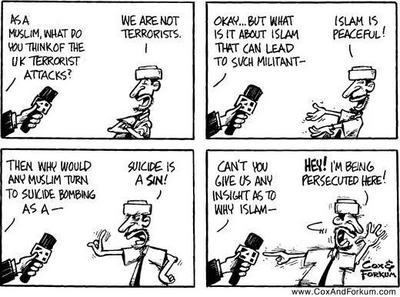
The true confrontation, the deepest confrontation of all, was over Islam and nothing but Islam. Religion was the issue. Qutb could hardly be clearer on this topic. The confrontation arose from the effort by Crusaders and world Zionism to annihilate Islam. The Crusaders and Zionists knew that Christianity and Judaism were inferior to Islam and had led to lives of misery. They needed to annihilate Islam in order to rescue their own doctrines from extinction. And so the Crusaders and Zionists went on the attack.
But this attack was not, at bottom, military. At least Qutb did not devote his energies to warning against such a danger. Nor did he spend much time worrying about the ins and outs of Israel’s struggle with the Palestinians. Border disputes did not concern him. He was focused on something cosmically larger. He worried, instead, that people with liberal ideas were mounting a gigantic campaign against Islam — ”an effort to confine Islam to the emotional and ritual circles, and to bar it from participating in the activity of life, and to check its complete predominance over every human secular activity, a pre-eminence it earns by virtue of its nature and function.”
He trembled with rage at that effort. And he cited good historical evidence for his trembling rage. Turkey, an authentic Muslim country, had embraced secular ideas back in 1924. Turkey’s revolutionary leader at that time, Kemal Ataturk, abolished the institutional remnants of the ancient caliphate — the caliphate that Qutb so fervently wanted to resurrect. The Turks in this fashion had tried to abolish the very idea and memory of an Islamic state. Qutb worried that, if secular reformers in other Muslim countries had any success, Islam was going to be pushed into a corner, separate from the state. True Islam was going to end up as partial Islam. But partial Islam, in his view, did not exist.
The secular reformers were already at work, throughout the Muslim world. They were mounting their offensive — ”a final offensive which is actually taking place now in all the Muslim countries. . . . It is an effort to exterminate this religion as even a basic creed and to replace it with secular conceptions having their own implications, values, institutions and organizations.”
Mazzeltov,
Crethi Plethi



 RSS
RSS

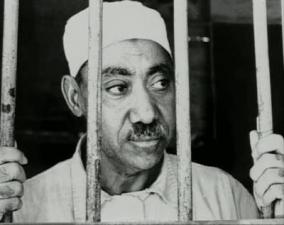
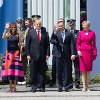

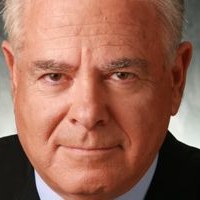
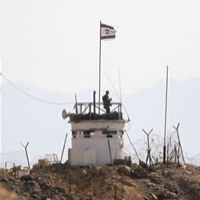
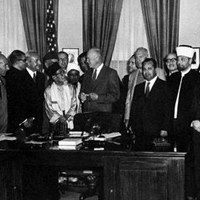








[…] (W.W. Norton), from which this essay (republished in 3 parts) is adapted. You can read part 2 here en part 3 […]
[…] The Philosopher of Islamic Terror – part 3 On 01.21.10, In Global Islam, Global Jihad, Islamism, The Middle East, By Crethi Plethi Published: march 23, 2003; The New York Times Magazine. Paul Berman is the author of the book ”Terror and Liberalism” (W.W. Norton), from which this essay (republished in 3 parts) is adapted. You can read part 1 here en part 2 here. […]
[…] from which this essay (republished in 3 parts) is adapted. You can read part 1 here en part 3 here. Read More »google_ad_client = "pub-3667441628576694"; google_alternate_color = "FFFFFF"; google_ad_width = 728; […]